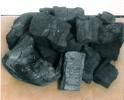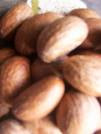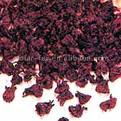Ginger is one of the worlds oldest and favorite spices. You can use ginger in the kitchen for a variety of tasty dishes. For culinary uses, ginger usually comes in powdered form or fresh. Fresh ginger comes in the form of a rhizome, a thick chunky root-like substance that has a thin brown skin and pale flesh inside. The younger rhizomes have a mild taste, but the later they are harvested, the more pungent they are.
Ginger is often used in Chinese cuisine and is a popular herb in the West for sweets and baking. It has been used for thousands of years in cooking, and its pungent flavor is a great compliment to many dishes. One particularly tasty application is to combine ginger with garlic in any type of stir fry. Coupled in this way with garlic it is guaranteed to delight your taste buds and quite possibly improve your health!
In fact, using ginger in the kitchen makes perfect sense because ginger itself can actually help with digestion So why not put it in as many dishes as you can? The oils in ginger help with the digestive process and can also eliminate flatulence, nausea and cramping.
Sometimes young, fresh ginger is pickled in sherry or vinegar to be used for snacks or for cooking. Fresh ginger can also be boiled to make a tea. You must have heard of ginger ale? The main ingredient is, of course, ginger although it has a much more mild taste than one might expect. This is probably why ginger ale was often recommended by Grandma for an upset stomach.
In India, ginger is used as a spice in many ways. It is used in curries as well as special foods for pregnant and feeding mothers. It is the main ingredient in a candy called Inji-murappa. In Japan it is used on noodles.
In the West, one of the most popular uses of ginger in the kitchen is to make candy or sweets. Who hasn’t had a gingerbread man during the holidays? For baking, powdered ginger is typically used, but the ground or powdered version isn’t really as good as the fresh. If you want to substitute fresh for ground in your recipes, you’ll want to use 6 parts fresh ginger for 1 part ground ginger.




